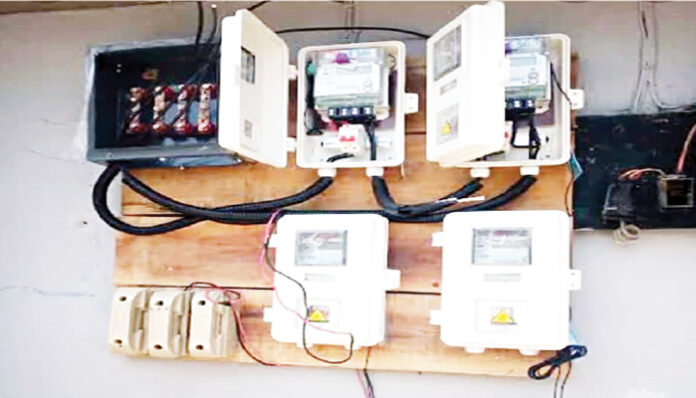Nigeria Government has lamented the high level of sharp practices employed by most electricity consumers across the country. This is as the government stated that over 68 per cent of electricity consumers in Nigeria are illegally bypassing their prepaid meters and consuming power without payment, according to Century Post report.
This was disclosed by the Nigerian Independent System Operator (NISO), on Thursday in Abuja during the fifth annual conference of the Power Correspondents Association of Nigeria (PCAN).
The disclosure came on the heels of stakeholders in the power sector calling for a balanced electricity tariff that would protect consumers while ensuring commercial viability for operators.
NISO revelation adds a new dimension to Nigeria’s worsening power sector liquidity crisis, as utilities already struggling with poor revenue collection now face widespread energy theft.
Speaking at the event, the Managing Director of Mainstream Energy Limited and board member of NISO, Audu Lamu blamed the current Nigeria’s harsh economic environment that has made it increasingly difficult for many consumers to pay for electricity.
Represented by the Managing Director and Chief Executive Officer of NISO, Abdu Bello Mohammed, Lamu said rising inflation, unemployment, and declining purchasing power, eroded the capacity of households and businesses to meet even basic utility costs.He said, “Millions of households in Nigeria still lack access to reliable electricity. For many,connection to the grid does not guarantee supply. And for others, the cost of energy remains beyond reach.
“Energy poverty is not just about a lack of connection but the inability to afford sufficient power for daily life and productive enterprise,” Lamu said.
According to him, while the need for cost-reflective tariffs is unavoidable, the challenge lies in implementing them in a way that does not worsen poverty or exclude the vulnerable.
The MD noted that Nigeria should be bothered about how to achieve cost reflective tariff in a way that preserves affordability and protects the most vulnerable among us.
Lamu proposed a targeted approach to subsidies that ensures only low-income consumers benefit. He argued that blanket subsidies have only sustained inefficiency in the system.
“Properly designed lifeline tariffs and data-driven, welfare-linked rebates can provide real protection for low-income consumers while allowing the market to function efficiently,” Lamu stated.
According to him, the tariff question is about finding equilibrium between commercial sustainability and social fairness. Between ensuring that our operators remain viable and ensuring that no Nigerian is pushed further into energy poverty.
Lamu equally identified inefficiency within the power value chain as a major driver of high tariffs. Just as he emphasized the need to reduce technical, commercial, and collection losses across distribution companies (DisCos).
The General Manager, NISO, Ali Bukar, in his speech, also lamented, the deepening liquidity crisis in the electricity market. He disclosed that over 68 per cent of consumers are bypassing meters or engaging in other forms of power theft.
According to him, this level of meter bypassing is undermining the financial stability of the sector.
He, therefore, called for stricter enforcement and the deployment of technology to curb theft and leakages within the system.
The Chairman of the Power Correspondents Association of Nigeria (PCAN), Obas Esiedesa, in his submission, pointed out that more than a decade after the privatization of the power sector, tariff balancing remains a formidable challenge.
He said, “The industry is still weighed down by an estimated N6 trillion debt owed by the Federal Government to power generation companies.
“A massive liquidity gap persists across the value chain, worsened by gas supply shortages, weak transmission infrastructure, and rising foreign exchange costs that threaten investments and operations.”
According to him, while operators are demanding cost-reflective tariffs as a condition for viability, millions of Nigerians continue to live in darkness. Or rely on expensive self-generation through diesel and petrol-powered generators.
In their submissions, energy analysts at the event noted that Nigeria’s power sector continues to operate far below its installed generation capacity. This, they said is due to weak infrastructure, poor liquidity, and energy theft.
They argued that without a holistic approach; combining enforcement, consumer protection, and efficient pricing the electricity market may remain in perpetual crisis.



